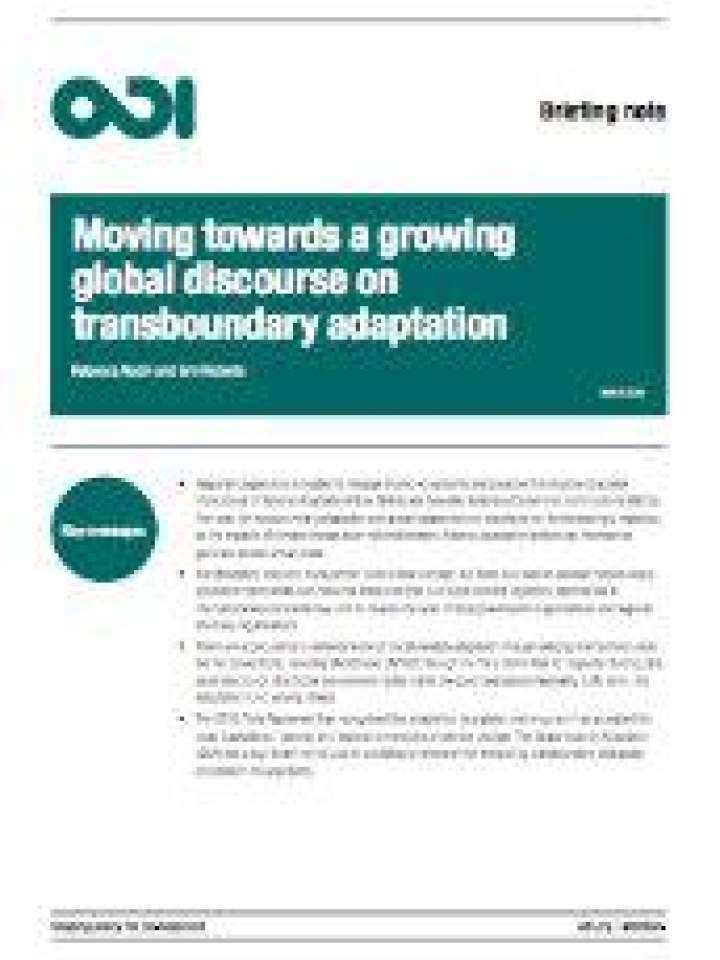Moving towards a growing global discourse on transboundary adaptation
This briefing note describes the current adaptation plans and strategies in place, including some, such as the Mekong River Commission, which address transboundary risks and the need to manage shared resources. It also highlights opportunities to enhance work on transboundary adaptation through existing mechanisms under the Rio Conventions, including UNCCD and UNFCCC through the Paris Committee for Capacity-Building and associated funds (the Global Environment Facility, the Land Degradation Neutrality Fund and the Adaptation Fund, among others).
Transboundary resource management is not a new concept, but there is a need to develop transboundary adaptation frameworks and response measures that build upon existing regulatory approaches in international environmental law, and to develop the work of intergovernmental organisations and regional advocacy organisations.
Regional cooperation is needed to manage shared ecosystems and consider the transboundary risk implications of National Adaptation Plans and Intended Nationally Determined Contributions. The need for transboundary adaptation and global cooperation on adaptation will be increasingly important, as the impacts of climate change span national borders. National adaptation actions can themselves generate transboundary risks.
Explore further
